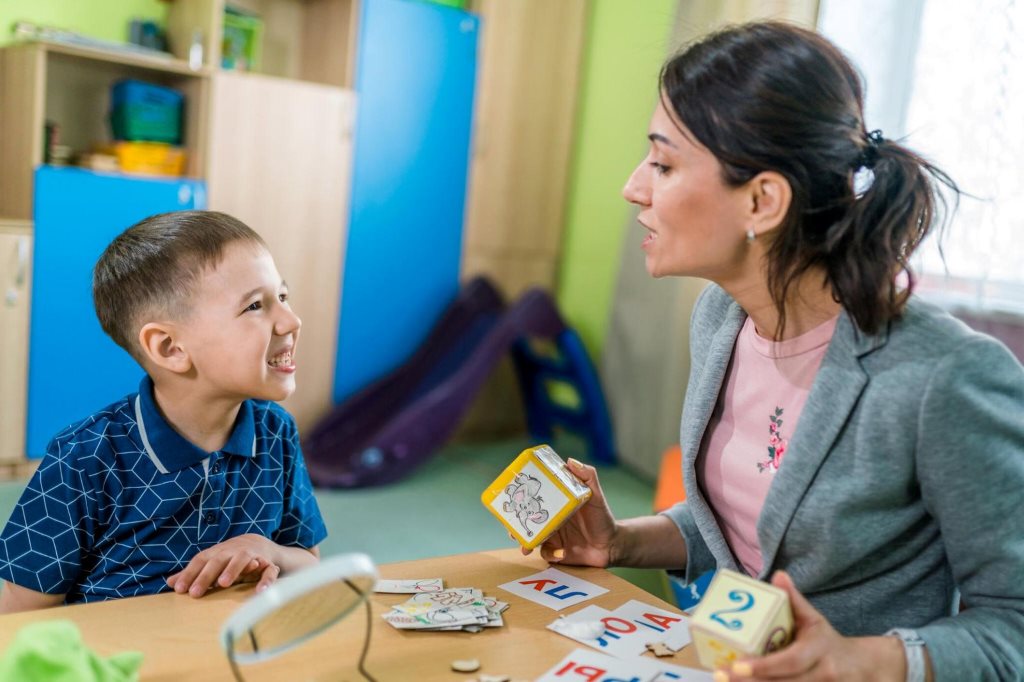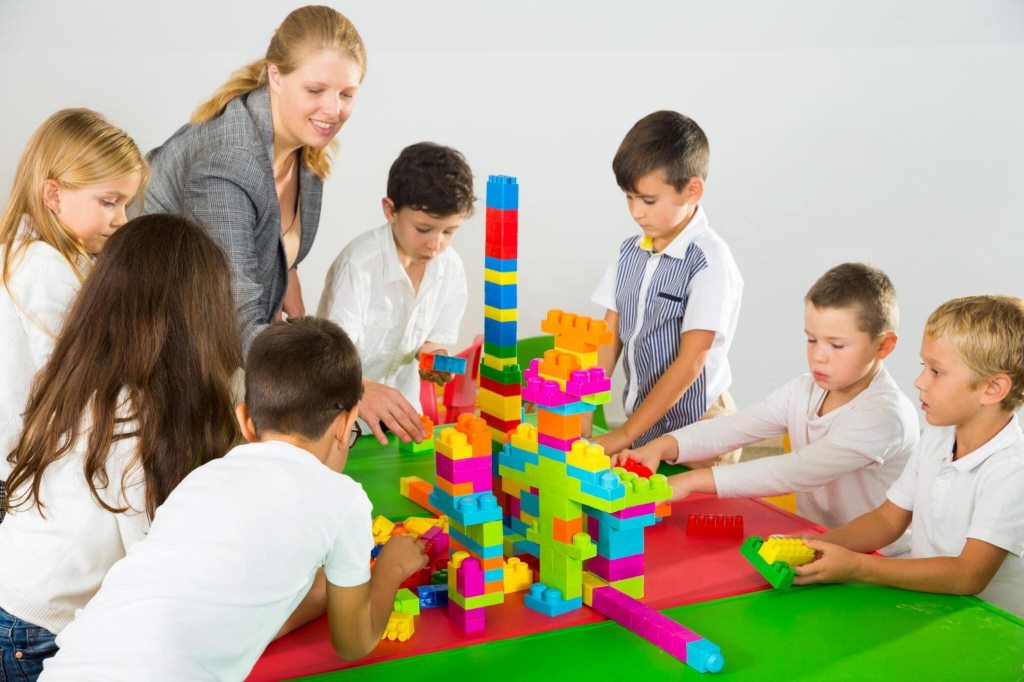Language and communication skills are fundamental to a child’s overall development. When a child faces challenges in speech and language, it can impact their social interactions, academic performance, and self-esteem.
Pediatric speech and language therapy plays a crucial role in identifying and addressing these challenges. This article delves into the ways in which speech and language therapy can benefit a child’s development.
Understanding Pediatric Speech and Language Disorders
Recognizing different pediatric speech and language disorders is essential for early identification and treatment. These issues vary from articulation challenges, hindering correct sound or word pronunciation, to language disorders impacting understanding and communication.
Organizations like Groves Learning Organization provide a comprehensive approach to speech-language therapy for students with learning disabilities and attention disorders, aiding them in communicating clearly and confidently.
Additionally, fluency disorders like stuttering and voice disorders related to pitch or quality of voice can also impact a child’s communication abilities. Recognizing these disorders is the first step towards effective treatment and support.
Types of Pediatric Speech and Language Disorders
Before delving into the benefits of speech and language therapy, it’s essential to understand the types of disorders that can affect children:
- Articulation Disorders: Difficulty producing sounds or pronouncing words correctly.
- Language Disorders: Challenges in understanding or using words and sentences.
- Fluency Disorders: Disruptions in the flow of speech, such as stuttering.
- Voice Disorders: Problems with pitch, volume, or quality of the voice.
Early Intervention is Key
Early intervention is pivotal in addressing speech and language disorders effectively. Detecting and addressing these challenges in the early stages of a child’s development can lead to significant improvements in communication skills, academic performance, and social interactions.
Prompt identification and intervention allow therapists to tailor treatment strategies to the child’s specific needs, maximizing the potential for positive outcomes and fostering a strong foundation for future development.

The Importance of Early Detection
Early detection and intervention are crucial in addressing speech and language disorders effectively. Children who receive early intervention often show significant improvements in their communication skills, academic performance, and social interactions.
The Role of Pediatricians and Parents
Pediatricians and parents are instrumental in early detection of speech and language disorders. Through regular developmental screenings during well-child visits, pediatricians can assess a child’s communication milestones and identify any delays or abnormalities.
Open communication between parents and healthcare providers facilitates the sharing of concerns and observations, enabling timely intervention and tailored treatment plans to support the child’s speech and language development effectively.
Benefits of Pediatric Speech and Language Therapy
Pediatric speech and language therapy offers invaluable benefits to children facing communication challenges. It enhances communication skills, facilitating better academic performance and social interactions.
Through individualized treatment plans, therapy boosts self-esteem and confidence, alleviating frustration often associated with speech difficulties. The multidisciplinary approach ensures comprehensive care, addressing the unique needs of each child and promoting overall developmental growth.
Improving Communication Skills
One of the primary objectives of pediatric speech and language therapy is to enhance a child’s communication abilities. Therapists employ a range of techniques and strategies tailored to each child’s unique needs.
These may include articulation exercises to improve sound production, language comprehension activities to understand language concepts, and expressive language exercises to help children effectively convey their thoughts and feelings.
Enhancing Academic Performance
Speech and language skills play a pivotal role in academic success. Children who possess strong communication abilities find it easier to actively engage in classroom discussions, effectively follow teacher instructions, and grasp complex reading materials.
These enhanced communication skills contribute significantly to improved academic performance, fostering a more positive and productive learning environment for the child.
Boosting Social and Emotional Development
Effective communication is pivotal for fostering social interactions and cultivating relationships from early childhood through adulthood. Through speech and language therapy, children are equipped with vital skills to confidently initiate conversations, sustain meaningful dialogue, maintain consistent eye contact, and accurately interpret non-verbal cues.

These acquired abilities significantly enhance their social and emotional development, enabling them to engage more harmoniously with peers and navigate various social contexts with increased confidence and understanding.
Building Self-esteem and Confidence
Children who struggle with speech and language often experience frustration and feelings of isolation due to their communication challenges. This can significantly impact their self-esteem and confidence, making social interactions and academic settings daunting.
Speech and language therapy plays a pivotal role in addressing these challenges by providing tailored strategies and tools to enhance communication skills.
As children make progress and become more adept at expressing themselves, they experience a boost in self-confidence and develop a more positive self-image, paving the way for improved social interactions and academic success.
Tailored Approaches in Pediatric Speech and Language Therapy
In pediatric speech and language therapy, the emphasis is on individualized care. Therapists assess each child’s unique needs and challenges to create tailored treatment plans.
These plans incorporate specific goals, techniques, and strategies to address the child’s speech and language difficulties effectively. By providing personalized care, therapists can maximize the child’s progress and ensure that the intervention is both targeted and beneficial.
Individualized Treatment Plans
Every child presents with unique communication challenges, requiring personalized attention and care. Pediatric speech and language therapists meticulously assess each child’s abilities, strengths, and areas of improvement.
Based on this comprehensive evaluation, they craft individualized treatment plans that are tailored to address the specific needs of the child. This targeted approach ensures that the intervention is effective, impactful, and conducive to the child’s overall development.
Multidisciplinary Approach
Speech and language therapy frequently adopts a multidisciplinary approach, working in tandem with various healthcare specialists to offer holistic care to the child.
Speech therapy collaborates with occupational therapists for fine motor skills, psychologists for emotional aspects, and educators for academic integration, ensuring holistic child development.

Conclusion
Pediatric speech and language therapy plays a crucial role in supporting a child’s overall development. From improving communication skills and enhancing academic performance to boosting social and emotional development, the benefits of speech and language therapy are manifold.
Early intervention, individualized treatment plans, and a multidisciplinary approach are key components in ensuring successful outcomes for children with speech and language disorders.
By recognizing the importance of speech and language therapy and advocating for timely intervention, parents, caregivers, and healthcare providers can empower children to reach their full potential and thrive in all aspects of life.




